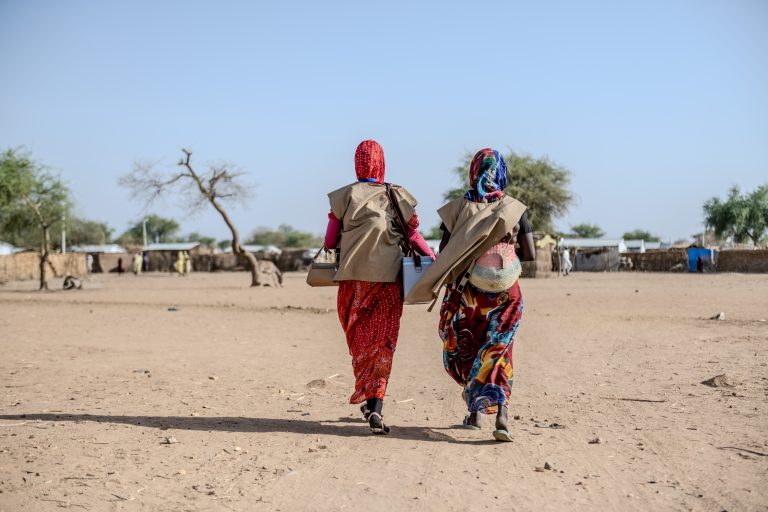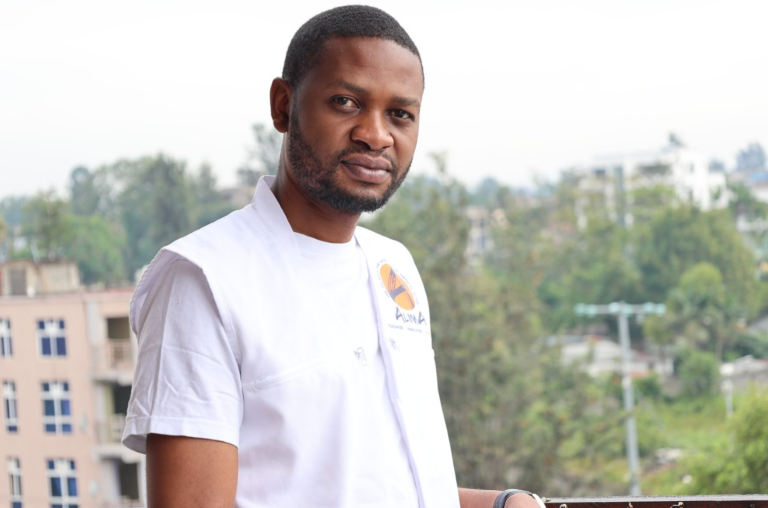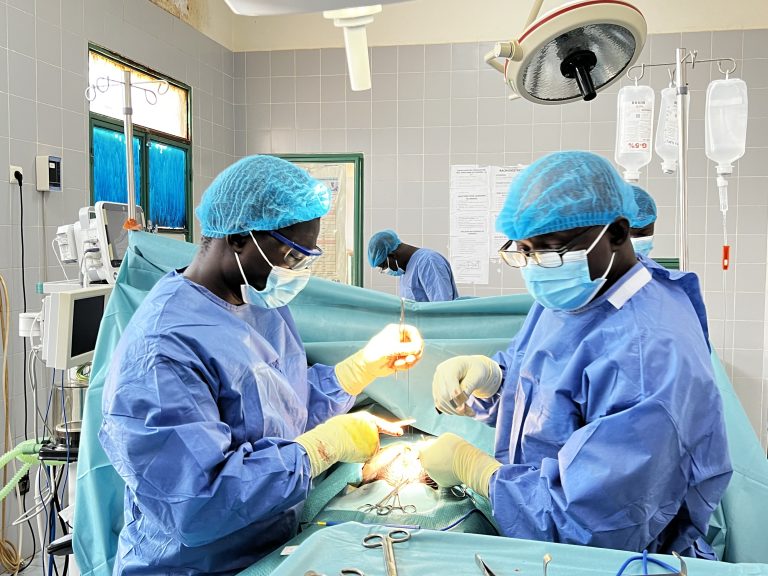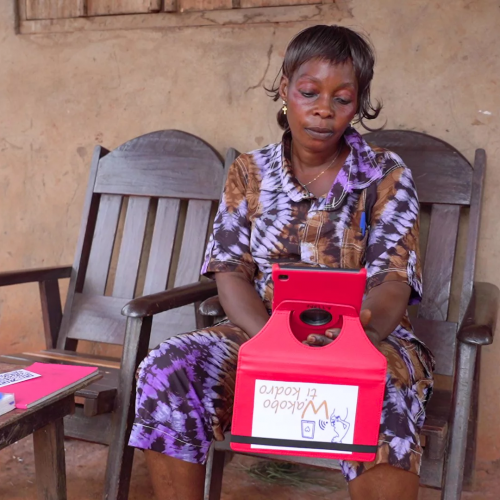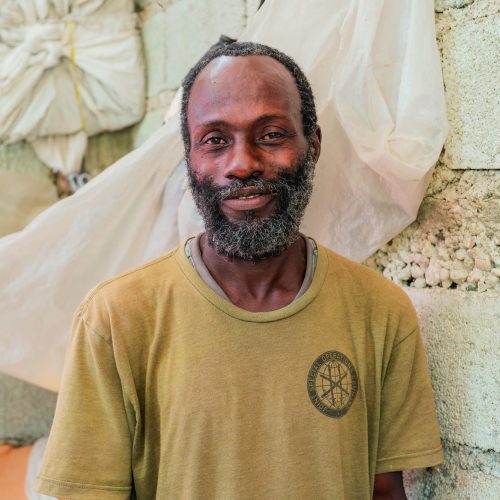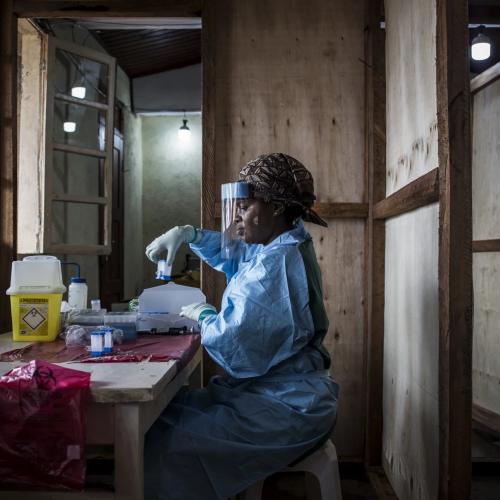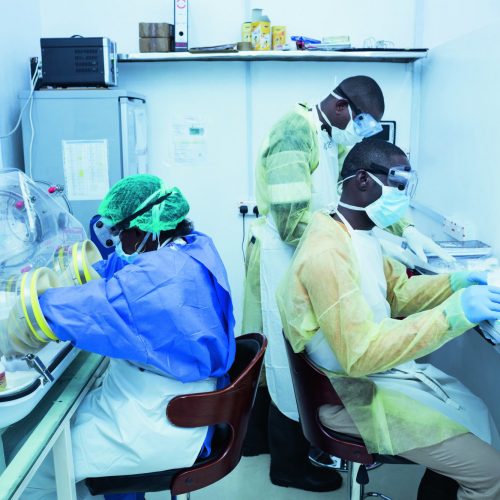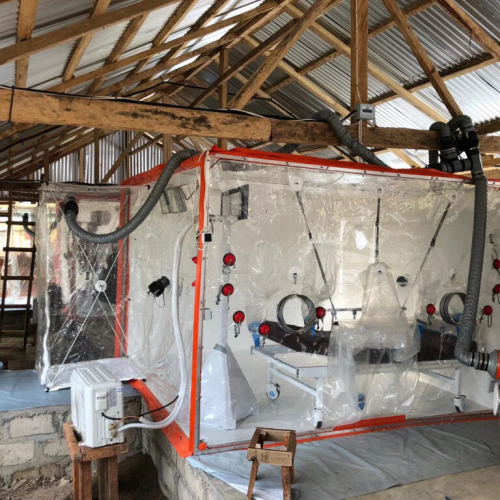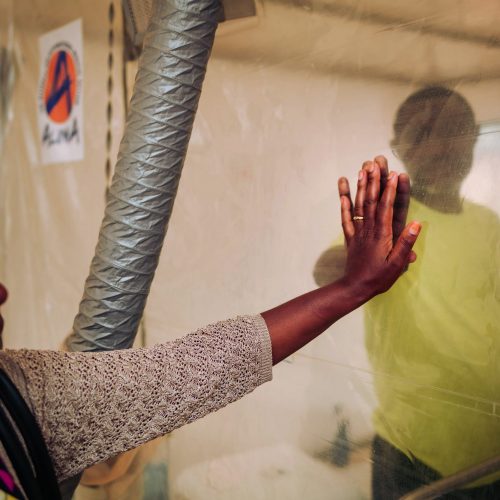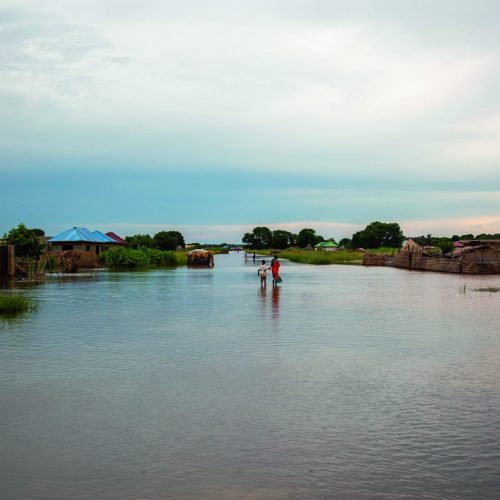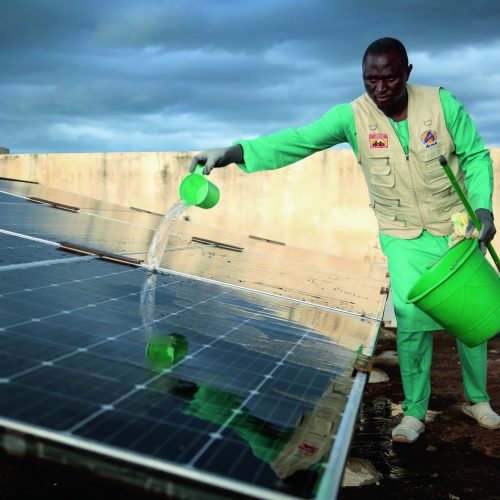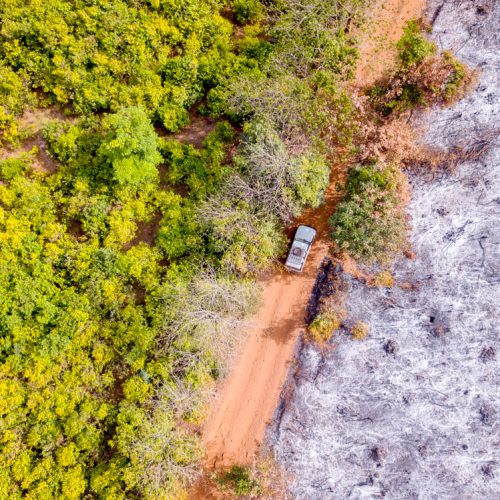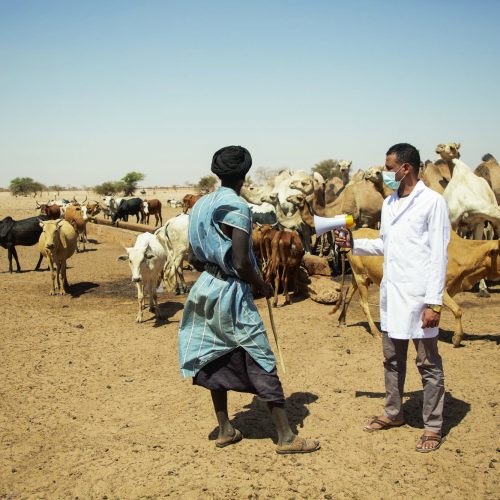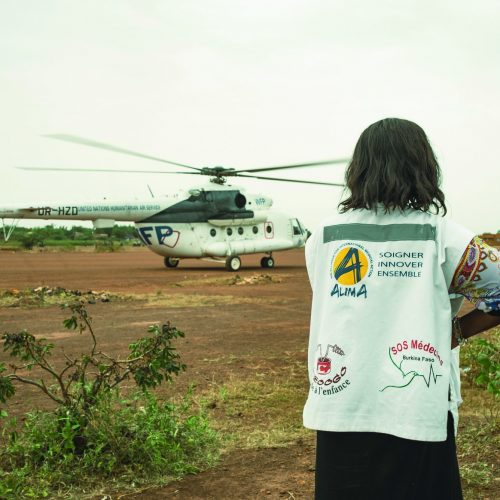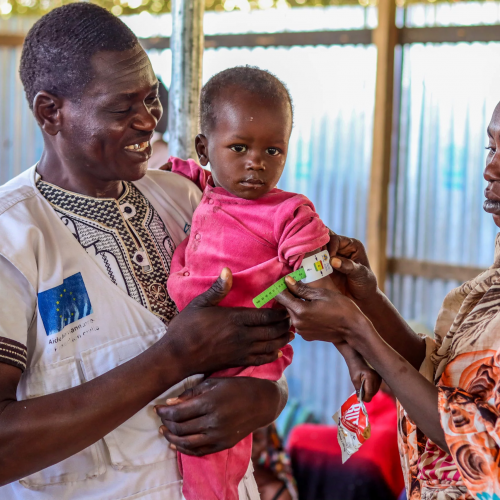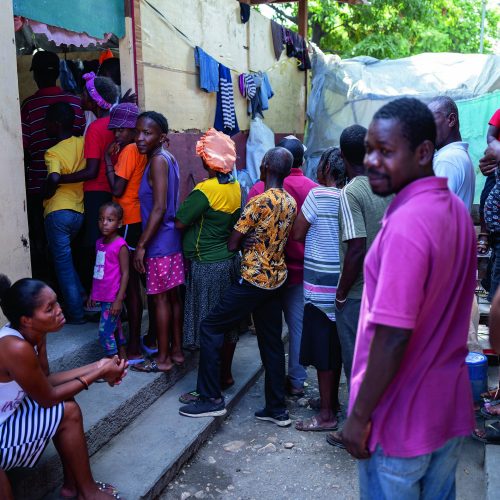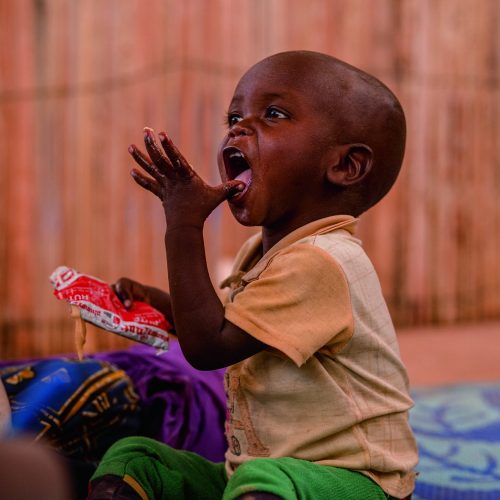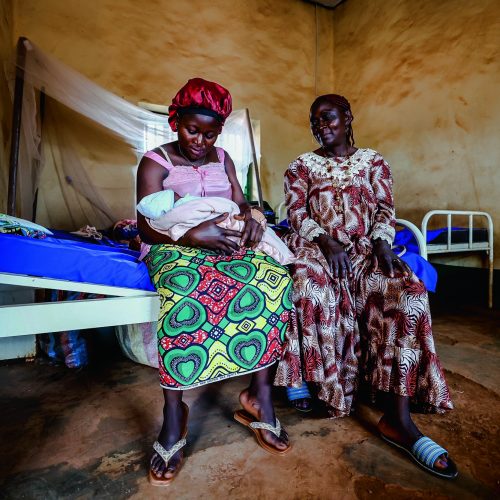Since autumn 2022, renewed fighting between the Congolese army and non-state armed groups has driven families from their homes in North Kivu in east Democratic Republic of Congo (DRC). At least 183,000 people have been displaced since October 2022* from the region’s Rutshuru territory alone. This resurgence in violence is a continuation of the longstanding conflict between several armed groups that has destabilized the North Kivu region for decades. Forced to flee their villages due to the violence last October, displaced families have been seeking shelter at the outskirts of the regional capital Goma, living with local host families or under tarpaulins in spontaneous collective sites.
Living conditions in these makeshift sites are extremely difficult: families find themselves in overcrowded and unsanitary spaces, often without food or clean water. This has left infants suffering from malnutrition, and women and children vulnerable to sexual and gender-based violence. In addition infectious diseases often run rampant in such unsanitary situations, and a cholera epidemic is currently raging through North Kivu, with over 700 persons suffering from the disease since last October.
Ensuring access to primary health care for displaced families
Since December 2022, ALIMA has been providing medications and emergency medical care to the most vulnerable among these displaced communities in Rusayo territory on the outskirts of Goma.
ALIMA teams have set up tents providing primary health consultations and care, particularly for mothers and children, including screening children for malnutrition, medical consultations for pregnant women, and assisting in childbirths. In addition, victims of sexual violence also receive urgent medical care as required. Cholera vaccination campaigns by ALIMA are also underway to help limit the spread of the disease.
Moreover, to help families deal with the trauma of forced displacement, and support victims of gender based violence, ALIMA psychosocial professionals have been providing individual psychological consultations, as well as group trauma sessions at the IDP site. In addition, to improve the water, hygiene and sanitary conditions, ALIMA has rehabilitated toilets, rainwater collection areas and showers, and provided clean water to over 4,000 people at the site.
“We are seeing a huge increase in the number of displaced persons in need of humanitarian aid because armed violence in the region has become significantly worse over the past few months. As we are one of the few medical NGOs already operational and established in the area, we were able to mobilize our resources and teams on the ground to respond to this crisis as quickly as possible. However ALIMA – and the entire humanitarian community as a whole – urgently needs more resources and funding to be able to help everyone in need, ” said Dr. Baweye Mayoum, the ALIMA Head of Mission in DRC.
Rapid response saving even more lives
Present in the DRC since 2011, ALIMA’s quick operational capacity in such emergency situations is ensured through long-standing relationships with local communities and a unique Rapid Response Mechanism (RRM). The RRM is based on a community-based surveillance system combined with regional humanitarian agency updates that ensure that ALIMA is alerted about upcoming humanitarian crises linked to population displacements, disease outbreaks or natural disasters. After assessing and confirming needs, within 72 hours, the ALIMA RRM team has the capacity to launch an emergency response providing basic medical care to the communities affected. This emergency intervention can continue for up to one to three months, until local health structures and authorities have the capacity for an adequate response, or until a longer term project has been put in place.
The ALIMA RRM team has been responding to humanitarian crises in the country since November 2022, mostly in the North Kivu and Ituri provinces.
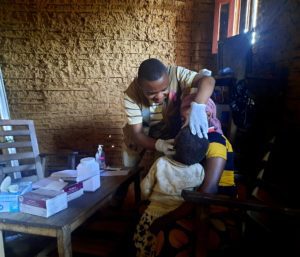
The DRC is home to the world’s longest-running humanitarian crisis. Launched in the DRC in 2022 with financial support from the European Union, USAID and the Hilton Foundation, ALIMA’s RRM activities have provided emergency medical care to hundreds of persons in the DRC so far.
>> Read more about ALIMA activities in the DRC
>> Read more about our Rapid Response Mechanism

